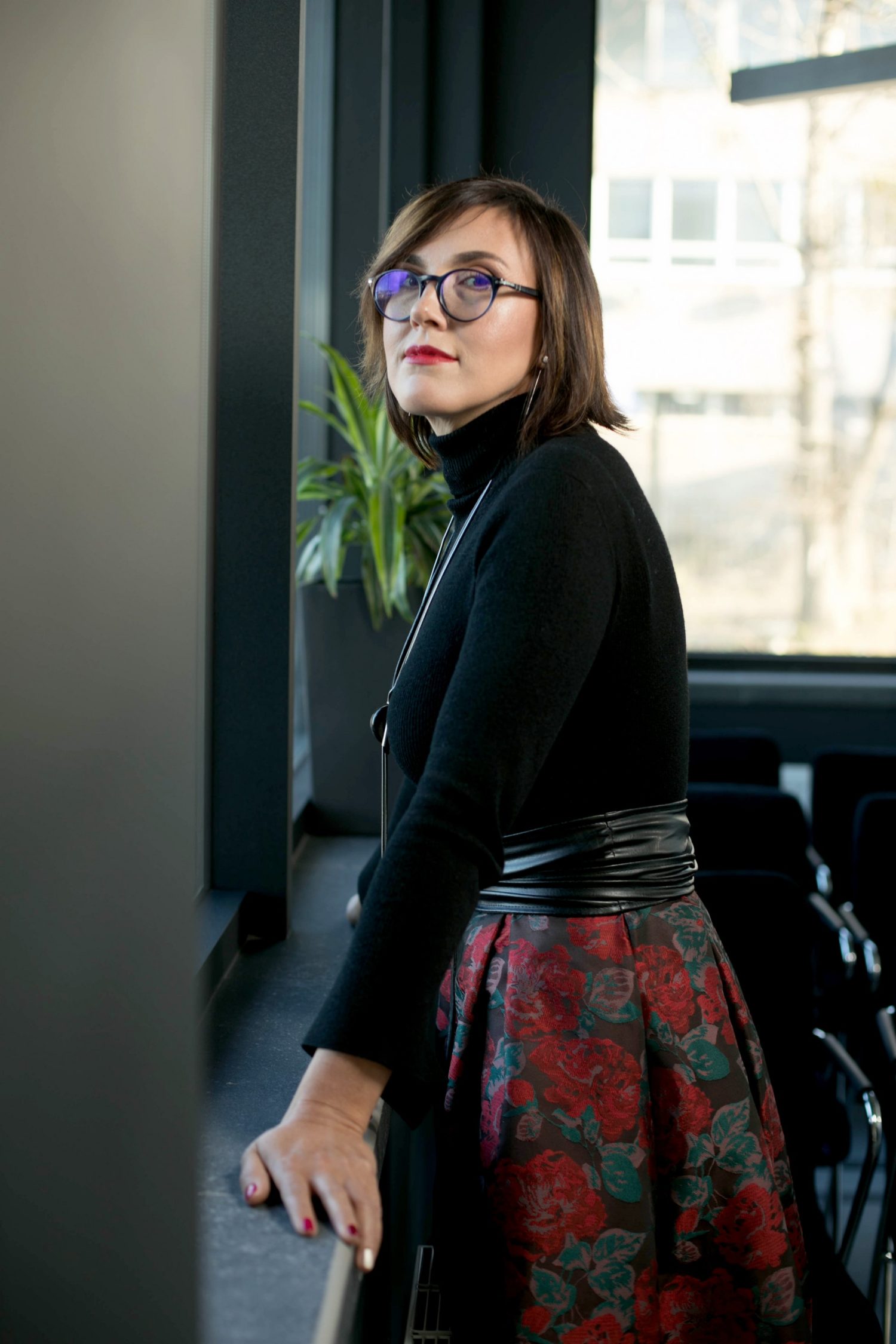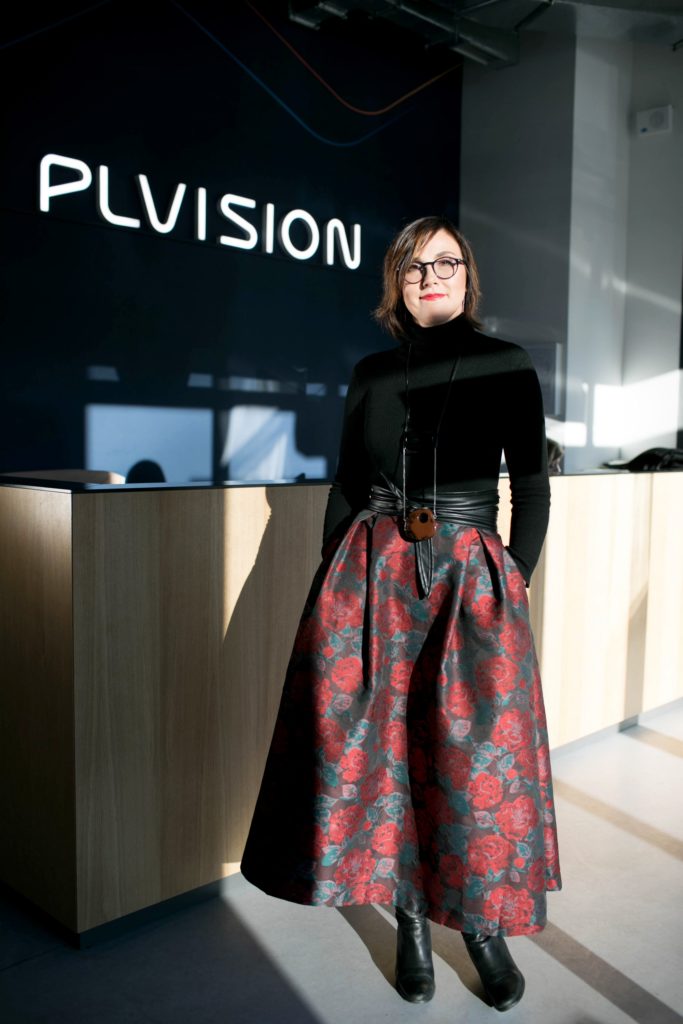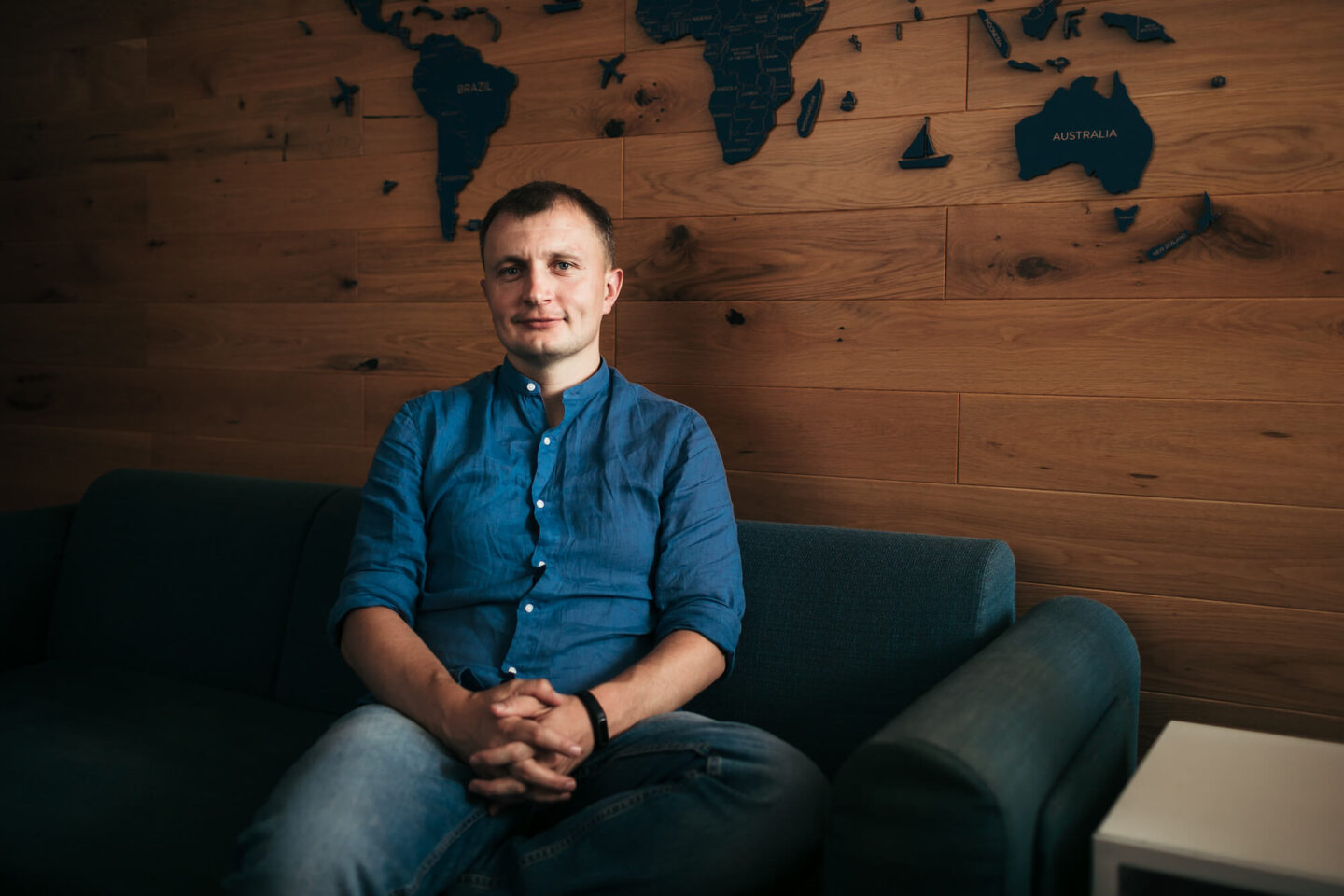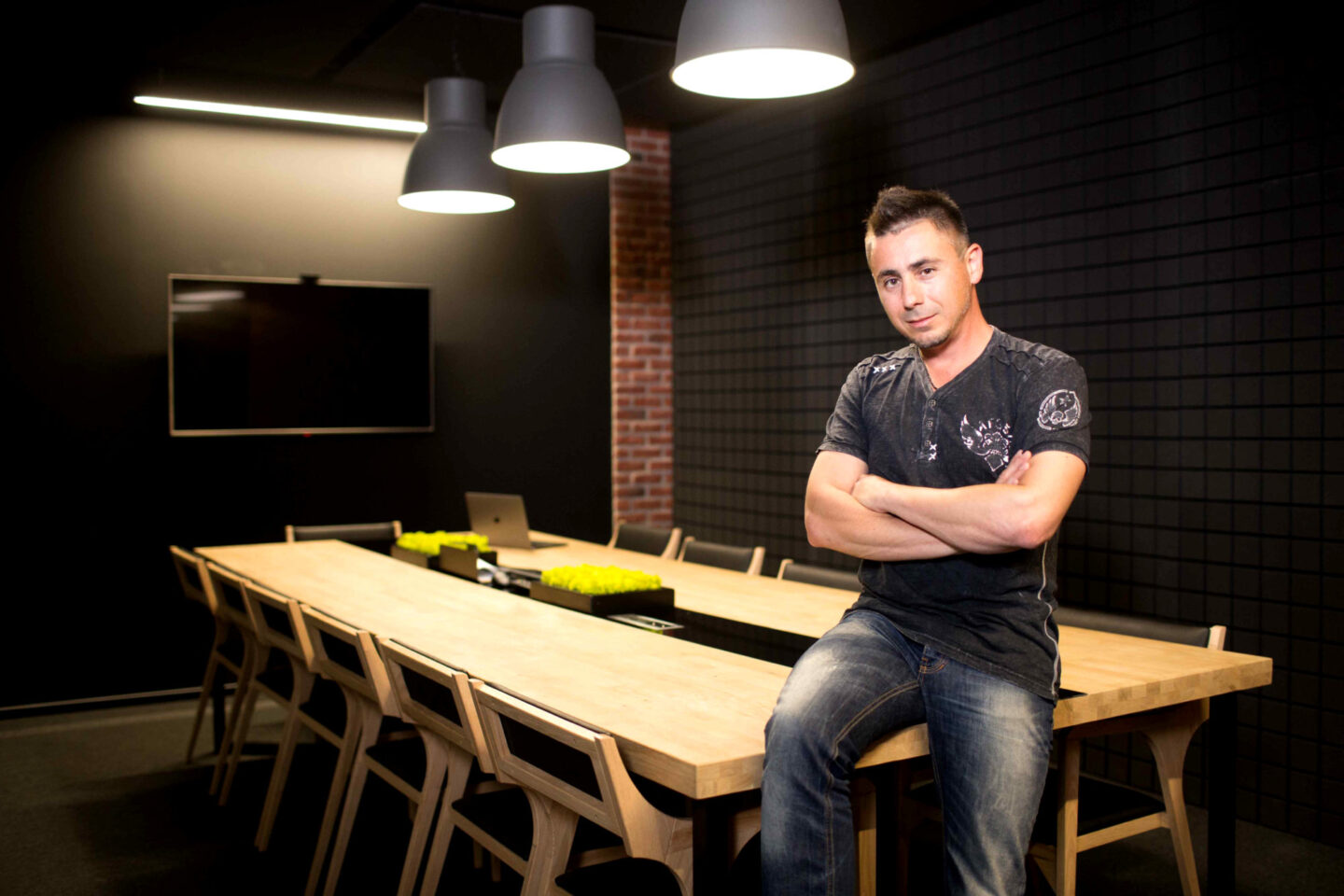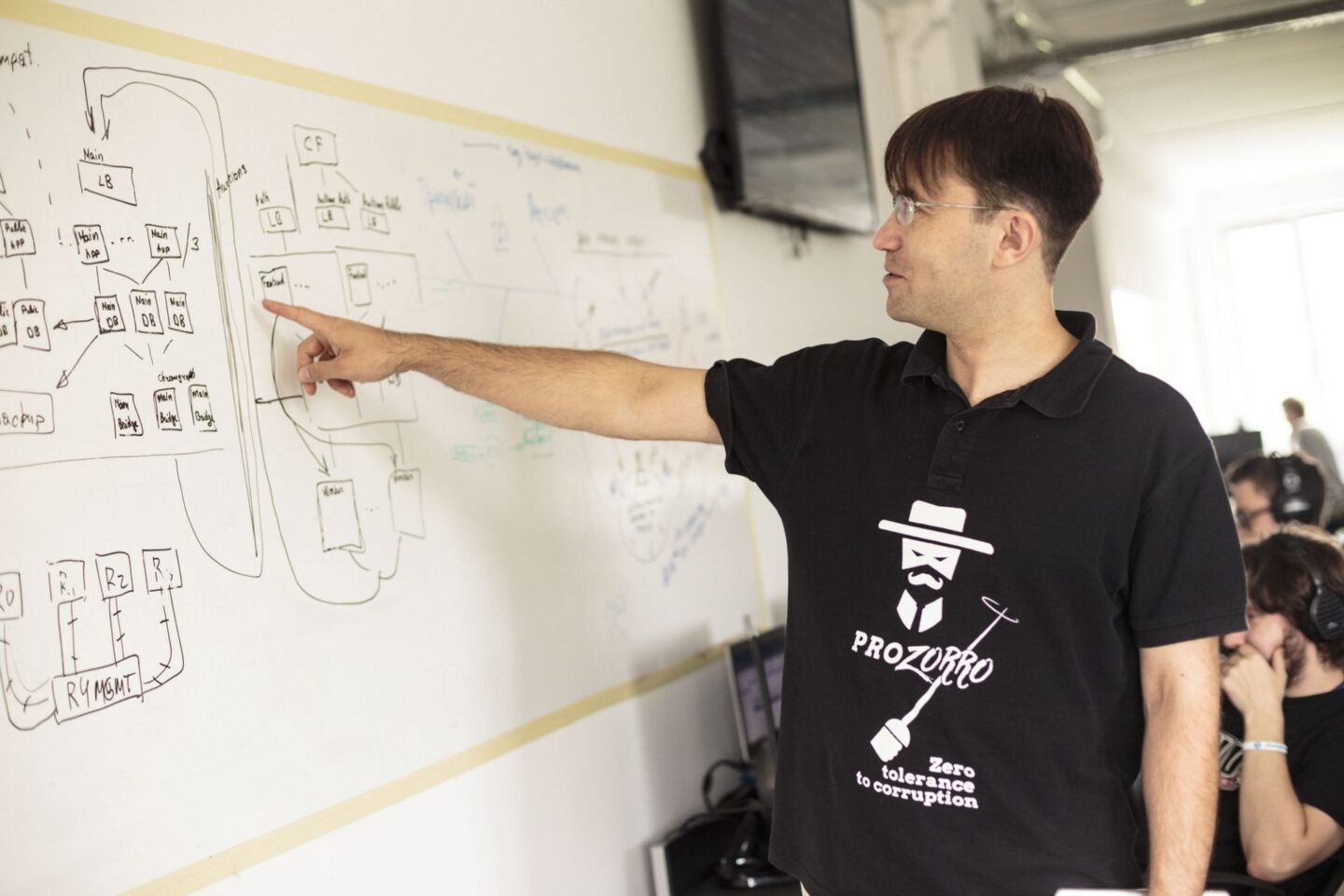“Technology of success” — a series of interviews with leaders of the most ambitious IT companies in the country. Throughout the year, together with Lviv IT Cluster, we will tell you about entrepreneurs and heads of tech companies in Ukraine, trying to better understand the people who are driving the country forward.
Olena Kozlova, CEO and Co-Founder of PLVision — about the big idea of the company, the value of making mistakes, and the importance of consciously choosing your own way.
I’ve already talked to a dozen of Ukrainian IT company leaders. However, you’re the first woman to take part in the project. Why do you think this is the case?
This situation, of course, is a consequence of cultural peculiarities. And not just Ukrainian, but global as well. Don’t forget that even in an advanced country such as Switzerland, women received the right to vote only in 1971.
Some time ago I talked to women in the USA, and they frankly spoke about problems in the context of earnings and access to top positions. We’re not the only ones facing this problem.
However, the most important thing is to understand that the problem exists and start thinking about solving it.
Once I delivered a lecture at the UCU about understanding yourself, motivation, and responsibility. Obviously, I didn’t separate boys and girls when I spoke about success. Because it’s utter nonsense. If you’re motivated and want to achieve something, then all other factors are not important. You have to move forward no matter what. If you keep justifying your failures, it means, you have not worked enough to achieve what you desire.
How did your professional story begin? How did you become the person you are now?
I majored in Finance. I started working for civil services before I turned 18. I had been awarded best student of the year by the Ministry of Finance. Even though I was still an undergraduate student at that time, they made an exception and hired me. I continued to study part-time. This is how I became a financial expert and a civil servant.
I left everything when I understood that I’m unable to change the system on my own. I was looking for an industry that would be interesting to work in. My choice had fallen on the IT industry. I realized it’s an opportunity to contribute to great ideas and projects.
I had worked at my first company for three years. Initially, I was engaged in the financial aspects, but later, when I was dealing with both financial and legal aspects of the company, I got bored. I read a book about manual testing and decided to move to the QA direction. I enjoyed testing.
At the next IT company, I changed direction again and was involved in the organization of training centers, HR management, recruitment, project delivery. I was lucky because the company owners saw potential in me, and never limited my work tasks. On the contrary, they put me in charge of the organization and launching various projects that were needed for the development of the company back then. At the same time, I was able to choose and try out different areas simultaneously.
At some point, I realized that I wanted more — to create something myself. First of all, I needed partners. In 2007, together with two software engineers, we started a company. I was responsible for everything, except for programming.
Right now, our company is growing successfully. I completed an MBA at Kyiv-Mohyla Business School (KmBS), studied at a reflexive management school in Odesa, and actively participate in various educational events.
For example, I took part in a “Responsible Leadership” seminar organized by Aspen Institute. I’m very proud of that because it’s difficult to get in there. Most importantly, I realized that these are the people we have a lot in common with, and I’d love to create new things and projects together.
I’m responsible for the business as a manager, for the city — as a resident, and for Ukraine — as a responsible citizen
I constantly work on my self-development and encourage everyone to do the same. Books and Coursera are basic things. Continuous self-development is the only way to meet the company’s goals. I’m responsible for the business as a manager, for the city — as a resident, and for Ukraine — as a responsible citizen.
Your company is 10 years old. In the modern dynamic world, it’s a rather long period of time. How difficult or vice versa — how easy was it to make the first steps? Could you outline the main stages of the company’s development?
We founded the company in 2007. At the beginning, it was called Toroki Ukraine. Some experienced C/C++ engineers from Lviv might still remember this name. Let’s say it was a happy “childhood” for the company. We had a lot of work at that time, but also a lot of inspiration. We worked on the projects 24/7, slept next to our computers, spent nights in the office… Nobody forced us to do so, but we had a great desire to succeed, and no other option.
There were a few of us, and we knew each other very well. A lot of the employees are still working at the company, and they remember that time fondly. It was us, doing something great. We really enjoyed what we were doing. I’d call it a “sweet” period.
Later we did a rebranding and transformed into Ostware Services. It was a teenage, rather transitional period. We succeeded in certain things and failed in others. We searched for ourselves. In order to expand and diversify the business on client’s market, we created a new brand — PLVision and opened offices in Odesa and Krakow. Last year, PLVision became our only brand and absorbed Ostware Services.
PLVision is already a period of self-awareness. At any stage of maturity, people ask themselves: who am I? what do I want to achieve? what is my goal? how do I reach it? We have asked ourselves all of these questions and tried to answer them. The strategy we’re currently implementing is the result of our searches and reflections.
What is the big idea of PLVision?
Our big idea is to actively develop connectivity while remaining a niche company. We see a great need and meaning in the idea of connecting everything. And we can successfully fulfill it thanks to our competencies in network technologies and IoT.
Facebook connects people, but we’re working more closely with devices. We understand that there wouldn’t be Facebook we know, without the technologies we’re developing.
The future is now. Machines communicate with one another by transmitting information to the cloud, big data helps us to rethink processes, people can’t stand being isolated from information for longer than 15 minutes, etc.
Every day we learn to solve these issues with higher quality, create value, to be the best in our niche. This is our Progressive Leadership Vision, and how we help our clients succeed.
Our big idea is to actively develop connectivity while remaining a niche company. We see a great need and meaning in the idea of connecting everything
Being a niche and focused company has allowed us to deeply immerse in our specialization and become experts in it. According to surveys, most of our employees see it as a trademark of the company.
What are the key competencies of PLVision?
We started with basic competencies in C/C++ Networking, then added Python. This core together with a successful software development experience, allowed us to contribute to the development of network technologies on the global scale.
Nevertheless, we understand that clients’ needs are constantly changing. Our knowledge and experience in the development of network and embedded technologies enabled us to successfully enter the IoT niche. In fact, we were developing IoT when it was still called M2M (machine to machine).
Now, as a part of our IoT direction, engineers are developing end-to-end solutions, in particular, for industrial enterprises. Our goal is to be able to offer clients the most comprehensive solutions with added value. Not only tech solutions but also business ones, which would successfully solve the client’s challenge and be the driving force behind their business growth.
Could you tell us about the biggest and most interesting projects of the company.
Unfortunately, I can’t disclose the names of most of our clients, but I can say that we work with the leaders of the network technology market. We’re developing their core product and work in their R&D teams.
Each project has its own specificity and value. Our projects are changing the world, and this is the strongest motivation for our engineers: to work not only for profits but also to create meaningful technologies.
For example, a startup with an innovative idea in the field of network technologies contacted us. We managed to transform their idea into a prototype, and as a result, the startup got acquired by a large company, thereby increasing its market share. We took the client’s idea and turned it into a product. This product has become successful, but our cooperation with the client continues.
Recently, we completed a project that successfully went into production, and the client signed a large government contract in the USA. Within that project, we’ve solved security issues of mission-critical networks. For instance, if there is a cyber attack on a power plant network, it is localized in a certain part of the network, while the rest of the network can continue to work smoothly. This is especially important for nuclear power plants.
One of the IoT projects we’ve just completed for a client from Texas — is the development of an IoT platform for managing equipment for oil & gas industry. With the help of this platform, the client and his customers are now able to monitor the entire system in real time and receive alerts in case of failure or a high probability of failure.

Moreover, we’ve developed a platform for coordinated light management on an industrial scale. Now any device, even ordinary light bulbs, can perform more functions. A light bulb can be, at the same time, a motion sensor and transmit a lot of additional information. Managing each such object is quite difficult. The platform is now in production. Thanks to it, the client began to create an ecosystem of light bulb manufacturers of electric and plans to continue to conquer the market.
Thanks to our developments, our clients have won international competitions, received new contracts — their success is our main achievement.
Speaking about the client geography at PLVision, what are the countries?
Our main markets are the USA, Canada, and Israel. Also, we’re actively cooperating with clients from Western and Northern Europe.
How would you describe your average employee? What makes your corporate culture special?
We’re looking for people who are ready to develop constantly. If we are the best in our niche, we need to keep our standards high so as not to lose this status. Technologies, platforms, programming languages change, therefore, IT professionals need to learn continuously and keep up with the trends. We’re looking for such colleagues.
PLVision employees are people with the sense of a meaning
PLVision employees are people with the sense of a meaning. As a company, we create conditions for development. On the one hand, we have complex projects, on another — many professional colleagues who are always ready to help. When you ask our employees what is the best thing about the company, they answer it’s the team. A great team is not only about having a nice chat during lunch breaks or having fun at our awesome parties. What is it then?


In fact, what I mean is that we don’t have strict chain of command between positions. At PLVision, you can and you’re encouraged to approach a colleague who can help you. Mentorship practice is well developed here — you can get a mentor or become a mentor for someone. Our employees are also mentoring student groups, in particular, at the IoT program at Lviv Polytechnic.
On many projects, our employees are told what to do, but not how. This is another thing which is really helpful in self-development. We’re talking about a bigger responsibility. Obviously, in this context, there is a high probability of mistakes. Mistakes always happen, but our employees know how to make mistakes wisely. It is important to quickly understand what is wrong, talk to the client, offer a better solution, etc. Being able to do so, helps your personal development as well.
If a person has an idea, is able to “sell” it and is ready to take responsibility, we give them an opportunity to implement it. Moreover, we offer an opportunity to learn on the go. If a person lacks experience in some area, they can compensate it by learning in the process of work. If we compare the professional growth of an employee who has worked at our company for five years with the growth of an employee from another company, they would fundamentally differ in quality. I am very proud of this.
You can be yourself here. The personal brand of an employee is more important than their position. Everyone is different; therefore, we’re trying to find a role that would best suit the person’s talents.
We try to be as open as possible with our employees, discuss important for them and the company issues, etc. Also, we regularly conduct surveys and adopt the best ideas.
From the results of this year’s survey, we see that our employees value the company’s technological specialization, professional and friendly team, opportunities for growth and development, high level of trust and lack of bureaucracy, as well as open communication with management.
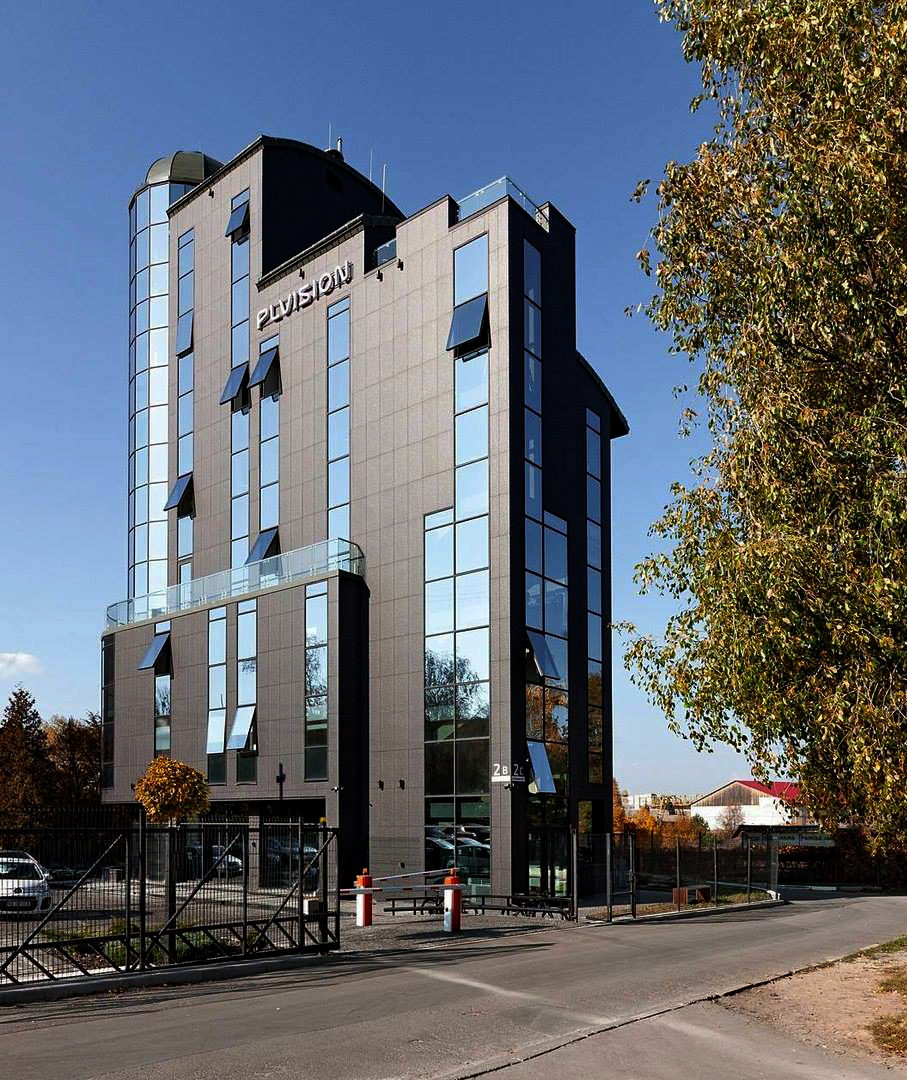

Interestingly, employees often return to PLVision after having worked at other companies. So, there must be something that attracts them. We say we don’t have former employees, and we’re genuinely happy when people come back or visit us, especially now, since we moved to a new office. Last year, we have invited all previous employees to celebrate the company’s tenth anniversary.
What, in your opinion, is the company’s greatest success?
The success of any business is usually measured by its financial indicators and potential. Undoubtedly, this is true, but in my understanding, success is also an opportunity to be the driving force for change: in businesses of our clients, in the local community, in Ukraine, in the world in general. We embody the idea proclaimed in our tagline “Connectivity of tomorrow” — we aim to connect people, ideas, and opportunities, create meaningful things.
We embody the idea proclaimed in our tagline “Connectivity of tomorrow” — we aim to connect people, ideas, and opportunities, create meaningful things
Systemic changes in education is one of the things that drives Ukraine’s overall development. I am proud of the projects implemented by our company. And I mean not one-time and short-term, but systemic changes. We’ve contributed to the launching of innovative degree programs at Lviv universities: IoT, Artificial Intelligence at Lviv Polytechnic (as well as the modern IoT lab there), and Data Science & Intelligent Systems, Computer Science at Ivan Franko National University of Lviv. Also, we organize regular training programs for senior students of tech universities; 80% of graduates later get a job at PLVision and grow together with us.
All of this perfectly correlates with my personal motivation. Here’s why. Social elevators work only in a few industries in Ukraine, and the IT industry is one of them. The more Ukrainian youth work in creative professions, develop themselves and the country, the more potential we will have.
It is important that young people find work here in Ukraine, live here, and develop our country.
What if you look at the success of the company from the standpoint of business?
I believe that we have successfully organized the management of the company. We have a horizontal organizational structure, there are directions and direction managers. There are ten direction managers, which is not very typical for a company of 140 employees.
We work according to agile principles — the leader of the company explains the overall goal and managers communicate, develop a strategy, and achieve results. This explains our structure. My task is to give employees resources, rights, and create preconditions for them to be successful in their positions. But I do not interfere with the implementation of the strategy.
If the strategy was born in one head and is simply written on paper, then it is dead. It is important to have followers who are ready to support you and who believe in the idea

If the strategy was born in one head and is simply written on paper, then it is dead. Undoubtedly, you can make a beautiful presentation and speak in front of the company’s managers, but this is not enough for success. It is important to have followers who are ready to support you and who believe in the idea. I’m really proud that my partner and managers have supported my idea for changes in the company.
Currently, we’re jointly implementing a strategy to transition to a new business model that would focus on business value for an end client, not just solving the most complex and innovative tech problems.
We have already mentioned that PLVision has recently turned 10 years old. Think of ten more. What is your vision of the company’s development? What would you like to achieve?
Based on my personal experience, I will say: you must be able to rethink the idea of the company in time. Now I understand that it’s okay to rethink and be skeptical about your business idea. You have to closely monitor the market and your competitors and research the market’s needs.
In 10 years PLVision will be a global tech company, offering the best solutions in its niche. As a company, we’re a part of the fourth industrial revolution. Moreover, we help other businesses to succeed during this revolution, therefore, we always need to be one step ahead. Everything needed for that is already in our DNA.
What does success mean to you? Do you consider yourself a successful person?
Success — is when you have found yourself, when you understand yourself, your motivation, and what inspires you.
Success — is something that lights you up. I can’t do things I don’t believe in or something I don’t like
Success — is something that lights you up. I can’t do things I don’t believe in or something I don’t like. If you don’t like what you do, usually it turns out to be something temporary and poor in quality. I found my vocation, therefore, I am successful.
What inspires you the most in life and work?
My basic motivation is to create. That’s why I chose the IT industry and the company engaged in such projects.
For every person, it’s important to be able to say “I did it”. For example, I built a house, I raised children, I planted a tree, etc. People always look back on the results of their work, and it’s important to see them.
I understand that a company that I started is creating something new for the world, and making people’s lives better. This inspires, and for me personally, it’s the best thing. You can’t buy it, and it’s not something that will just fall out of the sky. All of this is a result of work.
What would you advise people who are just starting their career?
Listen to yourself and try to be honest. Don’t live somebody else’s lives, find your own way. To do this, you have to understand yourself, constantly review your goals, and look for opportunities for development and improvement.
Don’t fool yourself. If you want to lie down in the sun and do nothing, then don’t force yourself to do something extraordinary. Everything has its own time.
If you are willing to learn and self-develop, look for opportunities and a place that would allow you to do so. It’s very important to channel your energy in the right direction.
Usually, people have a few of these true aspirations, and they don’t change very often. You should get rid of extra layers, like cars, apartments, and popularity, because there is a lot more underneath: professional pride, contribution to creating something new, ability to motivate others.
It’s important to be honest with yourself, and it’s not always comfortable. This is a conscious choice every person has to make. If a person doesn’t make a choice, someone else will do it instead. Therefore, some people move forward, and the others — stand still.
Why are you creating here, in Ukraine?
I believe in Ukraine. We are Ukraine. We were born and raised here, our roots are here. You can complain and say that we have poor education, healthcare, police. You can say that there is a dissonance between progressive ideas and real actions.
But one has to understand that we are the only ones responsible and can influence these processes. That’s our public responsibility, and if everyone does small things — make a lecture at school, organize cleaning of a yard, etc., many things would change. Positive changes are contagious.
Limitations exist only in our heads. For decades, we were discouraged from making decisions and taking responsibility for our lives. And we’re still suffering from this “illness”. Therefore, you need to start changes with yourself.
Do things that you believe in. I do what I believe in, and it motivates me not to pay attention to stereotypes and bypass external constraints. I’m surrounded by people doing fantastic things, and I look up to them.
Photos of the building — Oleh Babenchuk.


